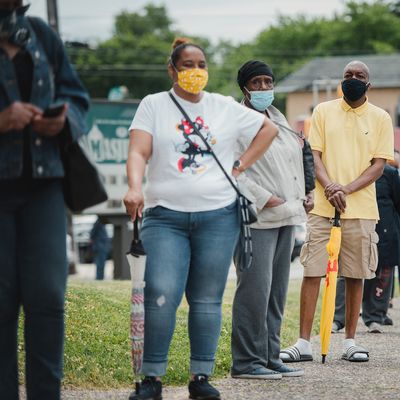
The Republican Party program of vote suppression has several elements. The most widely covered are the proposals to roll back voting access by restricting the use of drop boxes and mail voting, or imposing more paperwork requirements on prospective voters. Perhaps the most dangerous are changes in legal authority that would make it easier for Republican-controlled legislatures to hand their state electoral votes to their candidate regardless of the election outcome.
There is also a third category, which has attracted little scrutiny: a massive ramp up in fines and criminal penalties for election workers who violate any of the greatly expanded restrictions on voting access. The insidious aspect of this method is that it is facially neutral: Who would object to penalizing officials for breaking election laws? And yet the effect is to create asymmetric pressure on officials to suppress the vote themselves.
To get a clear understanding of the issue, it helps to have specifics in mind. University of Kentucky law professor Joshua Douglas collected some examples of the new election-law penalties:
• Iowa, in addition to limiting voter access by cutting early voting days and forbidding local election officials from mailing out absentee-ballot request forms without a specific request from a voter, will now make it a crime if election workers violate the new rules.
• Florida has enacted a rule that limits ballot drop-box availability to only during early voting hours and provides that, “If any drop box at an early voting site is left accessible for the return of ballots outside of early voting hours, the supervisor is subject to a civil penalty of $25,000.”
• A Texas proposed bill would subject a local registrar to fines if the registrar fails to mail out notices demanding proof of citizenship to individuals otherwise deemed ineligible to vote. It would also criminalize election workers who “distance or obstruct the view of a [poll] watcher in a way that makes observation reasonably ineffective.”
• Arizona legislators want to make it a felony for an election worker to mail an early ballot to a voter who has not requested one.
One obvious effect of all these penalties, as Douglas explains, will be to discourage election workers from volunteering in the first place. The entire American election system depends on a cadre of community volunteers to run elections at poll stations, acting out of civic obligation. To the extent that they face jail time or ruinous fines for making any errors on the job, their easiest and most rational response is to simply quit.
But the more dangerous possibility is that these penalties will cause election workers to err heavily on the side of vote suppression. In the real world, government bureaucracy, like many workplaces, involves messy and sometimes confusing situations. Employees make spot decisions based on incomplete information, balancing competing priorities against each other. Election Day often presents opportunities for confusion, such as voters who have moved from one state or precinct to another, can’t remember where they registered, and have limited time in their work day to sort it all out or present the necessary paperwork. The Republican strategy is to stack the incentive deck heavily, so that election officials would rather turn away 100 legal voters than to allow one ineligible ballot to be cast.
The pretext for these penalties is that they’re simply intended to encourage officials to adhere faithfully to the law. “People have to follow the law, and if I’m going to work for the government and I’m going to promise to follow the law and to serve the people of Texas, I’ve got to follow the law,” Texas Republican state senator Bryan Hughes, a sponsor of a vote-suppression bill, tells the New York Times.
To grasp the fallacy here, consider an analogous situation. More than a hundred Americans die every year because of crashes involving emergency vehicles. It’s a much more common problem than voter impersonation fraud, in fact. Should people driving ambulances and fire trucks try to avoid killing people on their way to an emergency call? Of course. Imagine states began imposing huge fines and prison time on emergency vehicle drivers who get into a crash. The effect would be to make them all err heavily on the side of driving safely to and from the emergency scene, at the expense of helping victims.
Republicans have spent years searching fruitlessly for the massive vote fraud they insist occurs routinely in American elections. The Bush administration fired many of its top attorneys for failing to turn up evidence of voter fraud the administration’s right-wing political advisers insisted must be out there somewhere. In the absence of any detectable level of vote fraud, the party is conjuring the phantasm of crimes where essentially none exist, to intimidate election workers into erring on the side of inhibiting voting.






























